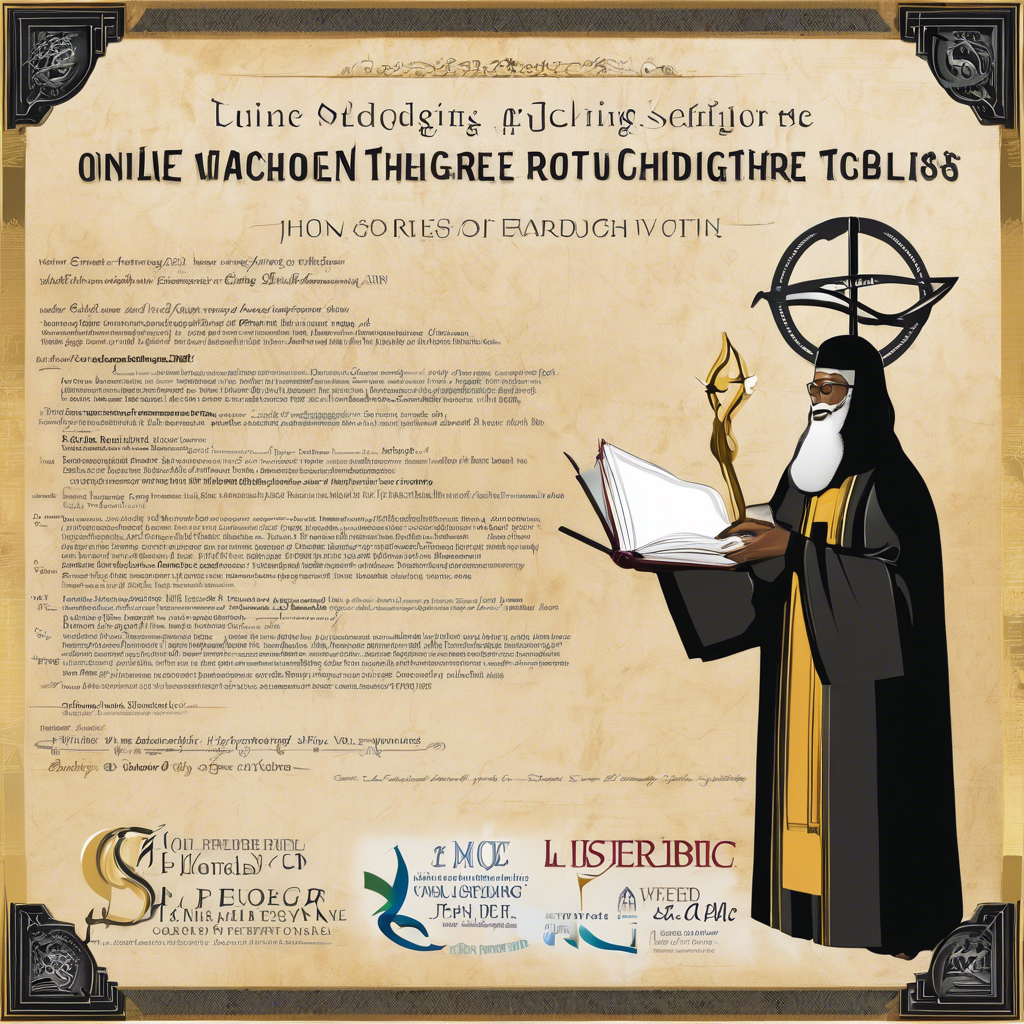Online theology degrees have gained popularity in recent years, offering individuals the opportunity to explore religious studies from the comfort of their own homes. These programs provide a flexible and convenient way for students to deepen their knowledge of theology and pursue a career in the field. With the advancement of technology, online learning has become increasingly accessible, allowing students to engage with course materials and participate in discussions with professors and classmates virtually.
One of the key benefits of pursuing an online theology degree is the flexibility it offers. Students can complete coursework at their own pace and schedule, making it easier to balance academic studies with other commitments such as work or family responsibilities. This flexibility also allows individuals from diverse backgrounds and locations to access quality theological education without the need to relocate or commute to a physical campus.
Another advantage of online theology degrees is the variety of programs and specializations available. Students can choose from a range of courses that cater to their specific interests and career goals, whether they are interested in biblical studies, religious history, ethics, or pastoral ministry. This diversity enables individuals to tailor their education to suit their unique aspirations and areas of expertise within the field of theology.
In addition to flexibility and variety, online theology degrees also offer a cost-effective alternative to traditional on-campus programs. By eliminating the need for commuting, housing, and campus fees, online students can save money on overall tuition costs while still receiving a high-quality education. Many online programs also offer financial aid options to support students in pursuing their theological studies without the burden of excessive debt.
Despite the numerous advantages of online theology degrees, there are some challenges that students may face when studying in a virtual environment. One common concern is the lack of face-to-face interaction with professors and peers, which can impact the depth of discussions and collaborative learning experiences. To address this issue, many online programs incorporate virtual classrooms, discussion forums, and video conferencing tools to facilitate engagement and communication among students and faculty.
Another challenge of online theology degrees is the need for self-discipline and time management skills. Without the structure of a traditional classroom setting, students must be proactive in managing their study schedules and staying motivated to complete assignments on time. Developing effective time management strategies and setting realistic goals are essential for success in an online learning environment.
Despite these challenges, online theology degrees offer a rewarding and enriching educational experience for students seeking to deepen their understanding of religious traditions and theological concepts. Whether pursuing a career in ministry, academia, counseling, or community service, an online theology degree can provide the necessary knowledge and skills to make a meaningful impact in the field of theology.
In conclusion, online theology degrees have revolutionized the way individuals engage with religious studies and pursue careers in the field of theology. With their flexible nature, diverse program offerings, and cost-effective advantages, online theology degrees provide a valuable opportunity for students to explore their faith, expand their knowledge, and prepare for meaningful vocations in the realm of theology. As technology continues to advance, online learning will only become more accessible and impactful, shaping the future of theological education for generations to come.
